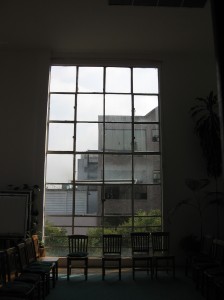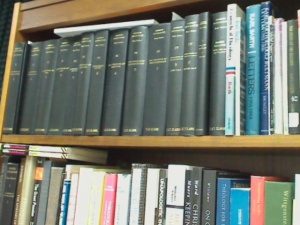Uncle Karl does not have a passport so he has to stay in Indiana. As much as it pains me to hit the “pause” button on a project underway, I won’t be toting volumes of the Church Dogmatics with me to Mexico; I’ll resume the reading in July when I return.

"It pleases me to summer in Indiana," said noted theologian, Karl Barth, "but Dr. Johns is unkind not to take me to the beach for at least one day of play."
As I announced last week here at Theography, I have committed to reading Barth’s entire magnum opus and began doing so on his birthday, May 10. I’m nearly 250 pages into I/1 (I’m trying to only include Barth quotations in my blogs from pages I have actually read during this year-long plus marathon).
Since it is my practice to only read material in Spanish while in Mexico (Honduras, etc.), Karl has to stay home–my copy of the CD is an English translation. Maybe it’s crazy, but as much as is possible, the only exception I make to this rule is reading email (and blog comments, of course). However, this ought not stop the rest of you from reading Barth throughout the month of June. We’ll compare notes when I return.

Citing concerns over the new Immigration Laws in Arizona, Swiss theologian Karl Barth cancels lectures in Phoenix and Tucson. "I don't look 'Arizonan,'” he told reporters, “I will limit my summer travels to Richmond, Indiana and surrounding communities."

